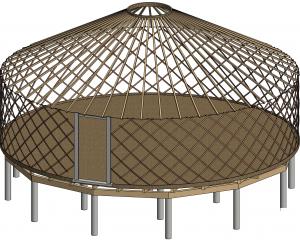President Julian Haworth told the Otago Daily Times yesterday he believed the council was too willing to process applications as ''non-notified'' rather than ''notified'', which would require a public hearing.
''The council seems to be under the misapprehension the change to the notification rules made by the Government in the past couple of years has made it much easier for them not to publicly notify resource consent applications.
''They are wrong,'' Mr Haworth said.
''The test is, the effects have to be minor.
''We've got these very stringent assessment methods, particularly in outstanding natural landscapes, which makes it almost impossible not to publicly notify an application.''
Mr Haworth claimed the council was ''pro development'' and not administering the district plan properly.
''I don't see where they see the legitimacy to do this.''
In an email sent to councillors and media, Mr Haworth gave two examples of resource consents processed as non-notified that he believed should have been notified.
He also pointed to a resource consent application by the Sharpridge Trust Ltd for a new building platform in an outstanding natural landscape alongside Lake Wanaka towards Glendhu Bay.
The council has yet to decide whether the application should be notified or not. Mr Haworth said if the council accepted the application as non-notified
it would be effectively approving the resource consent.
''The society believes that there is always going to be a reasonable likelihood that any new residence located within an outstanding natural landscape will have adverse effects that are greater than minor.
''It follows that the application must be publicly notified,'' Mr Haworth said in his email.
He noted that during the process to determine whether the application was notified or not, the applicant was able to present legal submissions and evidence while the public was excluded.
''This is a one-sided process.
''It has been the experience of the society that a decision not to publicly notify almost invariably eventuates and which at the same time effectively grants consent for the application, as adverse effects at that point will have been deemed to be minor.''
Council resource consenting manager Blair Devlin told the ODT the application from the Sharpridge Trust was received on May 21 and was ''currently on hold awaiting more information from the applicant''.
''The decision on whether or not to publicly notify the application has yet to be made.
''Planning staff have delegated authority from the council to decide whether this kind of resource consent application [is] notified.
''If the Upper Clutha Environmental Society is unhappy with the decision on notification, they can apply to the High Court for a judicial review.''
Mr Devlin said there was a statutory test to determine whether or not applications should be notified.
''It would be inappropriate to comment about the Sharpridge Trust's application, given that the test has not yet been applied in this case.''
No-one from the trust could be reached for comment yesterday.










